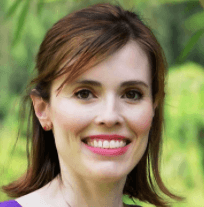How to Maximize Your MBA Application Process Now
January 15, 2025 |
Making good on a New Year’s resolution that is truly life-changing takes both courage and introspection.
If you resolved to apply for an MBA this year, you’ll need to invest your time and effort in personal self-reflection to maximize your chances of admissions success. And if you’re hoping to apply to one of the world’s most competitive business schools this fall, now is the time to start.
The importance of starting the MBA application process early cannot be overstated. In recent years, my Fortuna Admissions colleagues and I witnessed an unsettling trend of clients rushing their application process.
“People were coming to us seeking MBA admission coaching closer and closer to deadlines. They were straining to do months’ worth of work in mere weeks or simply cutting corners to one-shot their applications,” observes Jenifer Raver, a senior expert coach at Fortuna. She spends a lot of time talking with to young professionals hoping for a coveted spot at one of the world’s top MBA programs. “I persuaded many round one MBA hopefuls to wait until round two when their applications were strongest.”
“The reality is that my most successful clients — the ones that get into one or more of their top choices — invariably start working with me at least four to six months in advance,” says Raver, a former director at Yale-NUS College and a Wharton MBA / Lauder MA.
I’ve reviewed thousands of applications during my career in MBA admissions, while serving as head of Admissions at INSEAD and in my director’s role at Fortuna Admissions. I feel strongly that the most important action you can take is this: spend substantive time on self-reflection.
Why Self-Reflection Matters
Business schools don’t just want a litany of your professional triumphs and academic excellence. They want to know who you are, what makes you unique, and what you care about. In every element of the MBA application process — from crafting MBA essays to the admissions interview — you can expect formidable questions designed to excavate your unique qualities, guiding values, and academic and career ambitions.
For example, Stanford GSB’s notorious essay asks, “What matters most to you and why.” One of Harvard’s essays charges applicants to “reflect on how your experiences have influenced your career choices and aspirations and the impact you will have on the businesses, organizations, and communities you plan to serve. (You need to cover all of that in 300 words or less.) MIT Sloan’s video statement open-endedly directs you: “Introduce yourself to your future classmates.” Of course, you’re really demonstrating your social skills and self-awareness, ideally in an authentic, compelling way. Your classmates won’t actually see the video. It’s the admissions committee you need to impress with everything you can pack into the brief video.
“I tell my clients at the start of our engagement that spending time on self-reflection is the factor that ensures you’ll get into one of your top choice MBA programs,” says Raver. “It’s not resume, achievements, GMAT, or GPA. How much time are you willing to invest in yourself and this process – that’s the question. I’m asking you to get to know yourself.”
The process of outcomes-oriented introspection requires intention, discipline, and time. With Round 1 deadlines to the top tier schools due in September, it’s not too early to lay the groundwork for a successful application to your dream school.
5 Essential Ways to Maximize Your MBA Application Process Now
1. Look beyond your current horizon.
It can feel daunting to find the time for sincere self-reflection given the accelerated pace of life, especially for fast-track, high-performing individuals. Our professional lives have conditioned most of us to be connected more to our external devices than our interior lives. We are more devoted to multitasking than mindfulness. Yet self-awareness is exactly what the business school admission process is trying to exact from applicants.
“Not allowing yourself that time and space to be introspective early on is a missed opportunity,” says Fortuna’s Sharon Joyce, former Berkeley Haas Associate Director of Admissions. “For most of the people we’re working with, who have been incredibly successful in both academics and career to date, the missing piece at the outset is often thinking deeply on why the MBA is the vital next step. Then you need to express this with clarity and depth.”
Take a big step back to consider where you are in your life, and why are you choosing to pursue this type of degree in this moment of your career.
2. Take time to unplug.
Introspection can be a downright radical act in our digital age, where social media evokes our compulsive self-projection. Many of us are more practiced at curating a persona we hope to live up to than grappling with the big questions. A little distance – and silence – can do wonders for re-grounding. Try a daily stroll without your phone in tow or unplug from your devices and screens for regular intervals. Filmmaker Tiffany Shlain started a practice she calls her “Technology Shabbat,” where she and her family disconnect from all their devices from Friday evening until Saturday night. If the thought of it makes you break into a sweat, remember it doesn’t have to be an entire day. But it’s this kind of practice that can boost your creativity while also lowering the stress of being in constant communication with everyone but yourself.
3. Don’t go it alone.
As the cofounder of Fortuna Admissions, I’m biased about the benefits of having an expert MBA admissions coach who can guide and support you. Beyond their expertise and insight, a seasoned coach will push you to go deeper, helping to illuminate the stories and reflections you may have overlooked that will distinguish you to the MBA Admissions committee.
“I’ve found that if you’re willing to meet with your coach regularly, and commit to self-reflection several months in advance, things are going to work out well,” says Jenifer. “We can always meet people where they’re at in the application process, but what we’re offering isn’t just editorial support. It’s a relationship, and that takes time. The most powerful stories are often the most personal, and those kinds of insights won’t come out in the first phone call.”
That said, a first phone call can help you assess mutual fit and what you stand to gain by investing in the coaching process. You can request a free consultation with Fortuna Admissions.
4. Invest in meaningful extracurriculars.
As an MBA candidate, how you articulate your extracurricular involvement contributes to your overall story. Ideally, well-positioned extracurriculars will clarify and reinforce your passions, involvement in the community, and commitment to pursuits outside of work. Fortuna’s Heidi Hillis explains this in her article How to Position Extracurriculars on Your Business School Application. “What you do in your free time (what little you might have of it) is as interesting and important to the admissions committee as what you do at work because it sends a signal about the kind of student and alum you’ll be.”
Outside activities can easily fall by the wayside in the face of heavy workloads. It’s vital to try to stay involved in at least one or two of your commitments outside of work. This can be a nonprofit board, fundraising effort, sports team, or Bollywood dance club. If your resume is light on extracurriculars, now is the time to invest.
“You are not going to be able to compete for a place at the top schools if you only have deals or client work to talk about,” says Fortuna’s Karla Cohen, former Associate Director at Harvard Business School. “Your extracurriculars should help you to speak from your core being and reinforce what you want to do with your life, and why you want to do it.”
5. Release the tyranny of the “perfect profile.”
It can be a challenge to articulate who you are and why you’re worthy. Too many applicants squander valuable time overthinking what admissions officers want to hear. They try to shap their narrative to fit their perception of the “perfect profile.” As former admissions professionals, we at Fortuna know that there is no perfect profile. Rather, there are many compelling goals and valuable traits that will make you a success at b-school and in your career. That’s what the committee is looking for.
They want to know the real you. Delivering your narrative with authenticity is about daring to get personal. In the end, the more authentic you are, the more interesting you will be to the MBA admissions committee.
“Having passion and a sincere conviction about what you’re doing translates so much better to a standout MBA application than crafting what you think the school will be looking for,” says Fortuna Co-Founder, Judith Silverman Hodara. Programs pride themselves on getting to know you as a person during the admissions process, and there’s no single profile that’s more admissible than another.
So, consider this New Year’s resolution: Start early, and enjoy yourself. The sooner you start your personal journey of introspection, the more you will enjoy the MBA admissions process, and the greater your chances of admissions success. As Fortuna Co-Founder Matt Symonds says, “If you bring awareness to the process of applying, and not just the outcome, the benefits will extend far beyond an acceptance letter.”
Updated 1/15/25

Fortuna Admissions Co-Director Caroline Diarte Edwards is the former INSEAD director of admissions, marketing and financial aid. She is also an alumnae of INSEAD’s MBA program. For a candid assessment of your chances of admission success at a top MBA program, sign up for a free consultation.

